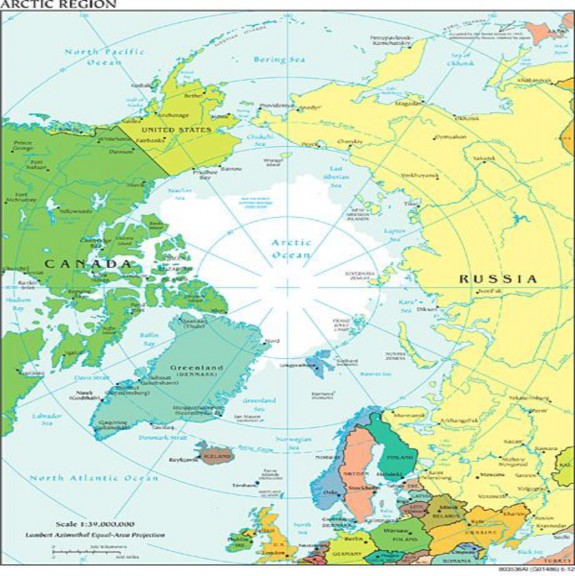2.5. The Arctic Council

Image Source: https://www.cia.gov/library/publications/the-world- factbook//graphics/ref_maps/political/jpg/arctic_region.jpg
♤ The Arctic Council is the leading intergovernmental forum promoting cooperation, coordination and interaction among the Arctic States, Arctic indigenous communities and other Arctic inhabitants on common Arctic issues, in particular on issues of sustainable development and environmental protection in the Arctic.
♤ The Ottawa Declaration (1996) lists the following countries as Members of the Arctic Council: Canada, the Kingdom of Denmark, Finland, Iceland, Norway, the Russian Federation, Sweden and the United States.
♤ In addition, six organizations representing Arctic indigenous peoples have status as Permanent Participants. The category of Permanent Participant was created to provide for active participation and full consultation with the Arctic indigenous peoples within the Council. They include: the Aleut International Association, the Arctic Athabaskan Council, Gwich’in Council International, the Inuit Circumpolar Council, Russian Association of Indigenous Peoples of the North and the Saami Council.
♤ Observer status in the Arctic Council is open to non-Arctic states, along with inter- governmental, inter-parliamentary, global, regional and non-governmental organizations that the Council determines can contribute to its work. Arctic Council Observers primarily contribute through their engagement in the Council at the level of Working Groups.
♤ The standing Arctic Council Secretariat formally became operational in 2013 in Tromsø, Norway. It was established to provide administrative capacity, institutional memory, enhanced communication and outreach and general support to the activities of the Arctic Council.
♤ In 2013 India achieved the observer Status in the Arctic Council, along with China, Italy, Japan, Republic of Korea and Singapore

♤ India would contribute its scientific expertise, particularly its polar research capabilities, to the work of the Arctic Council to support its objectives.
♤ India also looking for partnership in hydrocarbon exploration by by joining hands with one of the five countries gearing up for the purpose — the U.S., Canada, Norway, Russia and Denmark. Russia can be the most suitable partner geographically in this endeavour.
